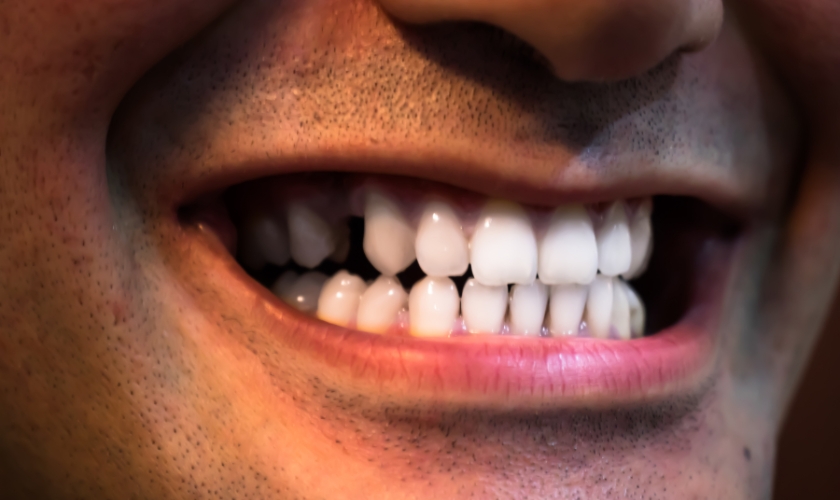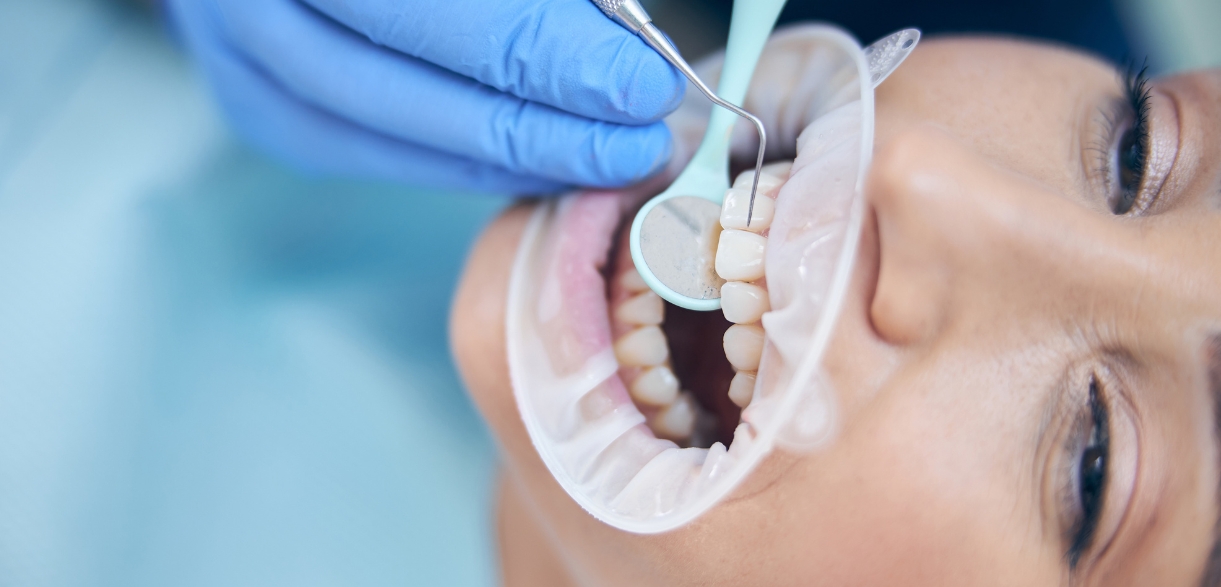Book An Appointment

Losing a tooth as an adult can be quite the shock. Whether it’s due to injury, decay, or some other unforeseen circumstance, it’s not something anyone wants to experience. But fear not! In this blog post, we’re going to explore what happens if you lose an adult tooth and provide you with some helpful tips on what to do next. So grab a seat and get ready for some fascinating dental insights – because losing a tooth doesn’t have to mean losing your smile!
What to Do If Your Tooth Falls Out?
Losing an adult tooth can be a distressing experience, but it’s essential to stay calm and take immediate action. If your tooth falls out, the first thing you should do is locate it. Carefully pick it up by the dental crown (the part that is visible in your mouth) and avoid touching the root.
Once you have found your tooth, gently rinse it with milk or saliva to clean off any dirt or debris. Avoid using water or soap, as this may damage the delicate cells on the root surface. It’s crucial to keep the tooth moist at all times, so try placing it back into its socket if possible.
If reinsertion isn’t feasible, store the tooth in a container of milk or saline solution until you can reach a dentist. Time is of the essence, so make sure to seek professional dental care as soon as possible – ideally within 30 minutes of losing the tooth.
Remember not to panic if your tooth falls out! By acting quickly and following these steps, there is still a chance that your dentist will be able to save and reattach your natural tooth.
How to Save a Loose Tooth from Falling Out?
If you find yourself with a loose tooth, don’t panic! There are steps you can take to save it from falling out. First and foremost, be gentle when handling the loose tooth. Avoid wiggling or pulling on it, as this may cause further damage or pain.
One option is to reposition the tooth back into its original place gently. Using clean hands or sterile gloves, carefully grasp the loose tooth and guide it back into position. Once in place, bite down softly to hold it in position.
Another method is utilizing dental wax or orthodontic wax. Apply a small amount of wax around the loose tooth to provide additional support and stability while preventing further movement.
Additionally, rinsing your mouth with warm saltwater can help reduce inflammation and prevent bacteria from growing. Mix half a teaspoon of salt in warm water and swish the solution around your mouth for 30 seconds before spitting it out.
Avoid eating hard or sticky foods that could potentially dislodge the tooth further. Stick to softer foods such as soups, yogurt, and mashed potatoes until you can seek professional dental care.
Remember that these methods are temporary solutions meant to buy time until you visit your dentist for proper evaluation and treatment options tailored specifically for your situation.
What Happens When a Tooth Falls Out?
When a tooth falls out, it can be a shocking experience. Your first instinct might be to panic, but it’s important to stay calm and take the appropriate steps. So, what actually happens when a tooth falls out?
There may be some bleeding from the socket where the tooth was rooted. This is normal and should subside within a few minutes. To help control any bleeding, gently bite down on a clean piece of gauze or cloth.
Once the bleeding has stopped, you’ll notice that there is now an empty space where your tooth used to be. This can feel strange at first and may affect your ability to speak or chew properly. It’s essential to visit your dentist as soon as possible to discuss replacement options such as dental implants or bridges.
In terms of oral health, losing a tooth can have significant consequences. The surrounding teeth may start shifting into the gap left by the missing tooth, leading to misalignment issues over time. Additionally, without stimulation from chewing forces on the root of the missing tooth, bone loss in that area can occur.
It’s worth noting that every case is unique; factors such as age and overall oral health contribute to how your mouth will respond when a tooth falls out. Therefore, seeking professional guidance from your dentist is crucial for proper evaluation and treatment planning.
Remember: losing an adult tooth doesn’t mean all hope is lost! Modern dentistry offers various solutions for restoring your smile and maintaining optimal oral health after experiencing this unfortunate event
What does a Tooth Look Like When It Falls Out?
What does a tooth look like when it falls out? It’s a question that may cross your mind if you find yourself in the unfortunate situation of losing an adult tooth. When a tooth falls out, its appearance can vary depending on various factors.
First and foremost, let’s talk about the root of the tooth. The root is typically not visible when a tooth is intact and in place. However, when a tooth falls out naturally or due to trauma, you might be able to see some part of the root attached to it. In some cases, the entire root may come out as well.
The crown of the tooth, which is usually what we see above the gum line, can also change in appearance after falling out. Depending on how it was lost and whether any damage occurred during its removal, the crown could be chipped or broken.
Additionally, when a tooth falls out naturally without any traumatic incident involved, it might appear fairly intact with minimal signs of damage. On the other hand, if there was forceful extraction or trauma involved in its loss (such as from an accident or injury), there may be more noticeable changes, such as fractures or cracks.
It’s important to note that these variations are general observations, and each case can differ significantly based on individual circumstances. If you have concerns about how your lost tooth looks or if you’re experiencing pain or discomfort after losing a tooth, it’s always best to consult with a dental professional for proper evaluation and guidance towards appropriate treatment options.
Can a Tooth Fall Out While Sleeping?
One of the common concerns people have is whether a tooth can fall out while sleeping. The answer to this question depends on various factors, such as the underlying dental health condition and any previous trauma or damage to the tooth.
While it is rare for an otherwise healthy tooth to simply fall out during sleep, there are certain situations where it may be more likely. For example, if you have severe gum disease or advanced tooth decay, your teeth may become loose over time. In such cases, movement during sleep could potentially lead to a tooth falling out.
However, it’s important to note that most teeth don’t just spontaneously fall out without any warning signs. If you notice any discomfort or looseness in your teeth while awake, it’s essential to seek immediate dental attention.
To prevent the risk of a tooth falling out during sleep or at any other time, maintaining good oral hygiene practices is crucial. This includes brushing twice daily with fluoride toothpaste and flossing regularly. Additionally, scheduling regular check-ups with your dentist will help detect and address any potential issues before they worsen.
Remember that every individual’s dental situation is unique; if you’re concerned about the health of your teeth or experiencing any unusual symptoms like increased mobility, it’s best to consult with a qualified dentist who can provide appropriate guidance tailored specifically for you.
Your oral health plays a significant role in overall well-being; therefore, prioritizing proper care and seeking professional advice when needed will help maintain strong and healthy teeth for years to come.
I Hit My Tooth Really Hard: Will It Fall Out?
Accidents happen, and sometimes we find ourselves in situations where we hit our teeth really hard. It can be a scary moment, leaving us wondering if our tooth is going to fall out. While every situation is unique and the outcome may vary, here are some things to consider if you’ve recently experienced a traumatic impact to your tooth.
It’s important not to panic. Teeth are incredibly resilient and designed to withstand a fair amount of force. However, that being said, a powerful blow can still cause damage. The severity of the impact will determine the potential consequences for your tooth.
If you’ve hit your tooth hard but it remains intact and in its original position, there’s a good chance that it won’t fall out immediately. However, this doesn’t mean that there isn’t any underlying damage or potential long-term effects.
It’s crucial to seek professional dental care as soon as possible after experiencing such an injury. A dentist will be able to assess the condition of your tooth and provide appropriate treatment if necessary. They may take X-rays or perform other diagnostic tests to evaluate any internal damage that might not be visible externally.
In some cases, immediate intervention such as root canal treatment or splinting may be required to save the injured tooth from falling out in the future. Remember that only a qualified dental professional can accurately determine whether your tooth is at risk of falling out due to trauma.
To prevent further complications or worsening conditions after hitting your tooth hard, avoid biting down on hard foods and chew on the opposite side of your mouth until you receive proper dental care.
Remember, every situation is different when it comes to dental injuries caused by trauma. So don’t delay seeking advice from a dentist who can provide personalized guidance based on their examination of your specific case.
Losing an adult tooth can be a distressing experience, but it’s important to remember that there are options available to restore your smile. Whether your tooth falls out due to trauma, decay, or other factors, seeking prompt dental care is crucial.
In the event of a lost tooth, taking immediate action is vital. Contact your dentist as soon as possible for guidance on what steps to take next. They will be able to provide you with the best course of action based on your specific situation.
By acting quickly and following your dentist’s advice, there may be ways to save a loose tooth from falling out completely. It could involve repositioning the tooth and stabilizing it with splints or undergoing root canal treatment if necessary.
When a tooth falls out, the consequences can extend beyond just aesthetics. Your oral health may also suffer as neighboring teeth shift into the empty space and jawbone loss occurs over time.
The appearance of a lost tooth can vary depending on whether it was extracted or fell out naturally. In some cases, only part of the tooth may break off while in others the entire structure might come loose.
It’s highly unlikely for a healthy adult tooth to fall out while sleeping unless there is an underlying issue such as severe gum disease or excessive pressure on the teeth during sleep bruxism (teeth grinding). Regular dental check-ups can help detect these problems early on before they lead to more serious complications.
If you hit your tooth really hard due to an accident or injury, it doesn’t guarantee that it will fall out immediately. However, trauma can cause damage internally which may weaken its stability over time. It’s advisable to schedule an appointment with your dentist who can assess any potential damage and recommend appropriate treatment if needed.
Remember that every case is unique when it comes to losing an adult tooth; therefore professional evaluation by a dentist should always be sought for proper diagnosis and personalized treatment options tailored specifically for you.
FAQ
Q: Can a lost adult tooth be saved?
A: In some cases, a lost adult tooth can be saved if immediate action is taken. It is crucial to keep the tooth moist by placing it in milk or saliva and seek emergency dental care as soon as possible. The dentist may be able to reattach the tooth using special techniques.
Q: Is it normal for an adult tooth to fall out?
A: No, it is not normal for an adult tooth to fall out on its own. Adult teeth are meant to last a lifetime, but trauma, injury, gum disease, or other factors can cause them to become loose or fall out prematurely.
Q: How long does it take for a knocked-out permanent tooth to die?
A: If a permanent tooth is knocked out and not immediately reimplanted or placed in proper storage media (milk or saline), there is limited time before the tissues inside the root canal start to degenerate. Ideally, you should see a dentist within 30 minutes of losing your tooth for the best chance of saving it.
Q: What are my replacement options if I lose an adult tooth?
A: If you lose an adult tooth and cannot save it, there are several replacement options available. These include dental implants that act as artificial roots with prosthetic teeth attached, bridges that span across neighboring teeth to fill gaps, and removable dentures that replace multiple missing teeth.
Remember that every situation is unique when dealing with lost adult teeth. It’s essential always to consult with your dentist for personalized advice and treatment options based on your specific needs.
Now armed with this knowledge about what happens if you lose an adult tooth, you can approach such situations calmly and confidently. Remember that prompt action plays a vital role in potentially saving your natural smile!





